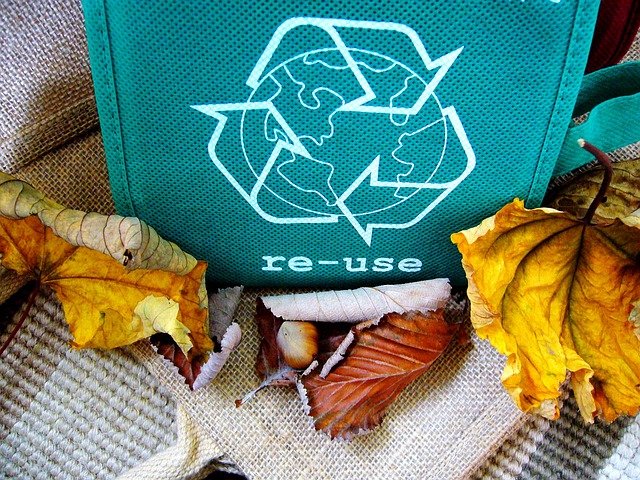The idea of recycling is appealing, but for many of us, it’s time consuming and confusing. Recycling materials can give them new life, improving economic efficiency and preventing environmental damage in the process – but most of us don’t want to spend hours of our lives recycling.
Is there a way to make recycling simpler, easier, and more accessible?
The short answer is yes.
Practice Smart Waste Habits
Responsible waste disposal isn’t just about recycling. It’s also about making sure you dispose of all forms of waste in a correct and environmentally friendly way. For example, renting a dumpster is a popular way to quickly and conveniently dispose of items in bulk – but did you know there are certain items that can’t be placed in a dumpster? Items like batteries, electronics, paints, and hazardous materials require disposal at a designated facility.
Establish Residential Recycling Pickup
Depending on where you live, your city may already offer residential recycling pickup. If not, you can pay for residential recycling pickup services. Having access to residential recycling pickup services will instantly make recycling much more convenient and accessible for you. You won’t have to drive to a recycling facility on the other side of town to drop off your recyclables, nor will you need to sort all your materials at a public drop-off location.
Instead, you can bundle all your recyclables together in the comfort of your own home, and simply put them on the curb on trash day.
Reduce Your Consumption (and Reuse Things)
“Reduce, reuse, recycle,” has been an environmental philosophy for many decades now, encouraging consumers to attempt all three of these concepts, in this specific order. The goal is to reduce the amount of things you buy and consume on a regular basis, so you naturally reduce your environmental impact and the amount of waste you produce. Among the things you do purchase and consume, you should try and reuse whatever you can. Only then should you start recycling the materials you have leftover.
Recycling is going to be much easier if you have fewer containers and materials to recycle overall. Reducing your consumption as an individual will save you money, simplify your life, and make you much less environmentally impactful.
Consider growing your own food, shopping at local markets, and purchasing items with less packaging. Then, consider reusing whatever you can, such as taking old food storage containers and using them to store other items.
Learn the Rules and Regulations
Most people are confused about recycling simply because they never learned the rules and regulations for recycling in their area. Most recycling service providers are happy to distribute guides to consumers to teach them how to recycle responsibly.
For example:
Materials. What types of materials are recyclable through your services? In most cases, you can safely recycle cardboard, paper, glass, and certain types of plastic, at a minimum.
Forbidden items. Certain items are not allowed to be traditionally recycled, including batteries, electronics, and hazardous materials. If you want to recycle these items responsibly, you need to take them to a dedicated facility.
Preparation. Before dumping your items in the recycling bin, you need to prepare them. Most recycling companies advise you to “empty, clean, and dry” all your materials, and to simply throw them away if they can’t be cleaned. If you don’t take these steps, you could end up contaminating an entire batch of recycled items.
Presentation. You also need to think about how you’re finalizing your recycling preparation. Some recycling facilities demand that you sort your items in a specific way, but increasingly, recycling pickup services are allowing consumers to place all their recycling in one bin.
Focus on What You Know
There are certain aspects of recycling that are going to be confusing to you, and there are certain recycling processes that probably aren’t going to apply to you. For these reasons, it’s a good idea to focus on what you know. If you’re not sure about whether something can or can’t be recycled, consider looking it up; if you still can’t find the information, just throw it away.
Sort Proactively
In some cases, you’ll need to sort your recycling. If this is the case, you’ll have a much easier time with recycling if you sort everything proactively. Instead of throwing everything into one bin and sorting it later, keep multiple bins and sort each individual item as you’re preparing to throw it away.
Empty, Clean, and Dry
The “empty, clean, and dry” process recommended by most recycling facilities can be somewhat time consuming, especially if you recycle a lot of materials. But there are some things you can do to speed up this process, such as throwing some of your recyclable items in the dishwasher for automated cleaning.
Get Everyone in the Family Involved
Recycling is going to be overwhelming if you’re the only person in the household responsible for it. That’s why it’s a good idea to get everyone involved. Give each of your family members specific responsibilities so that everyone is contributing to this family project.
Hopefully, these tips have been able to demystify some elements of recycling and make recycling seem easier and more accessible to you. As technology improves and interest in recycling increases, it’s only going to get easier from here.
Check with your recycling service provider regularly for new information, new recommendations, and new resources and tools you can use to recycle easier and more consistently.




